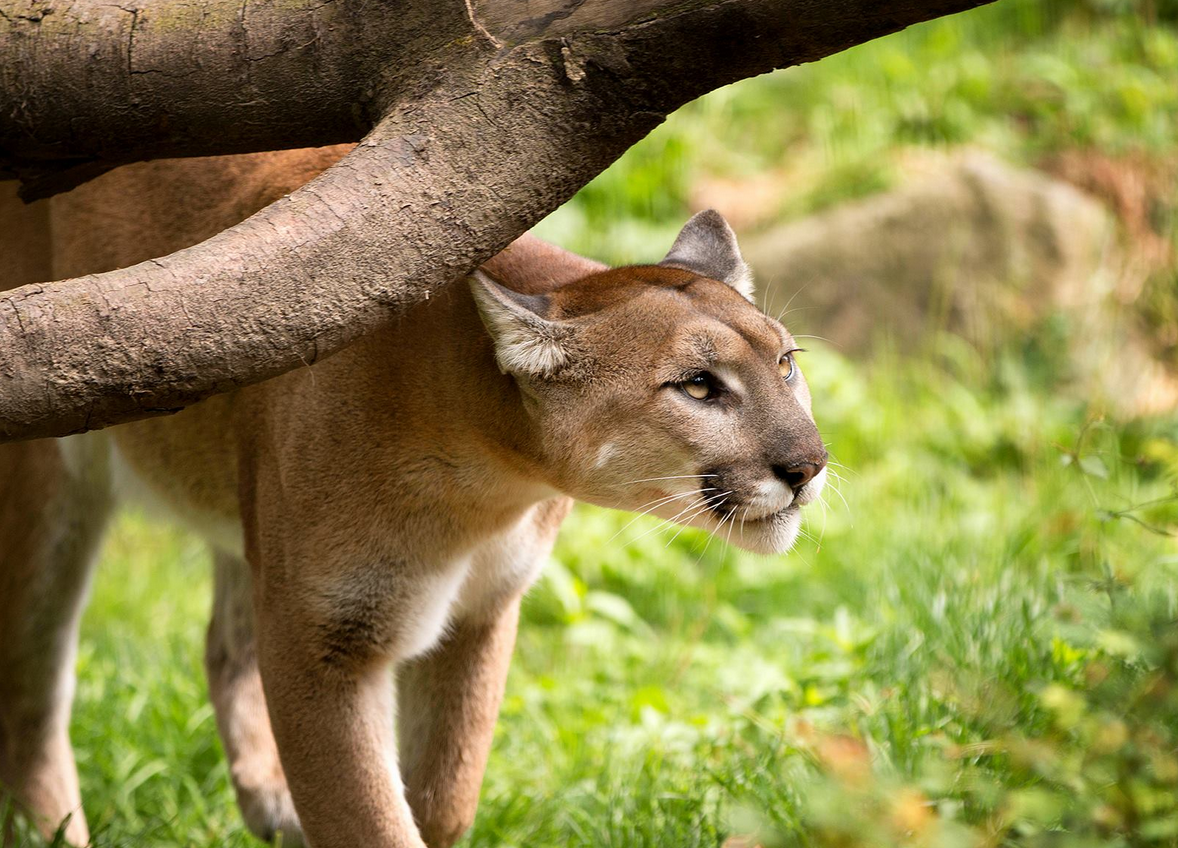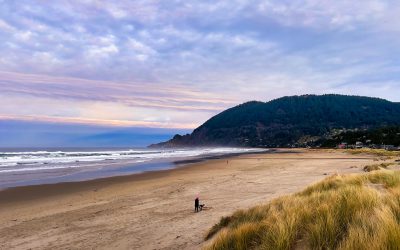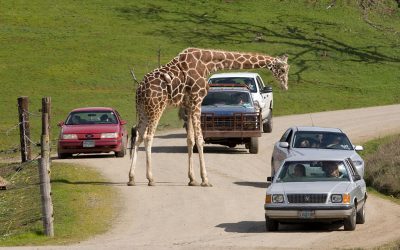Cougars, also known as mountain lions or pumas, inhabit the diverse landscapes of Oregon. These majestic predators are an integral part of the state's ecosystem. Oregon offers suitable habitats for cougars, including forests, mountains, and even some urban areas. While they are solitary creatures and generally elusive, there have always been occasional sightings and encounters with cougars in the state.
If you're planning a summer hiking or mountain biking trip to the mountains, it's important to keep in mind that you'll be sharing the trails with all kinds of wildlife. Remember: we're on their turf, not the other way around.
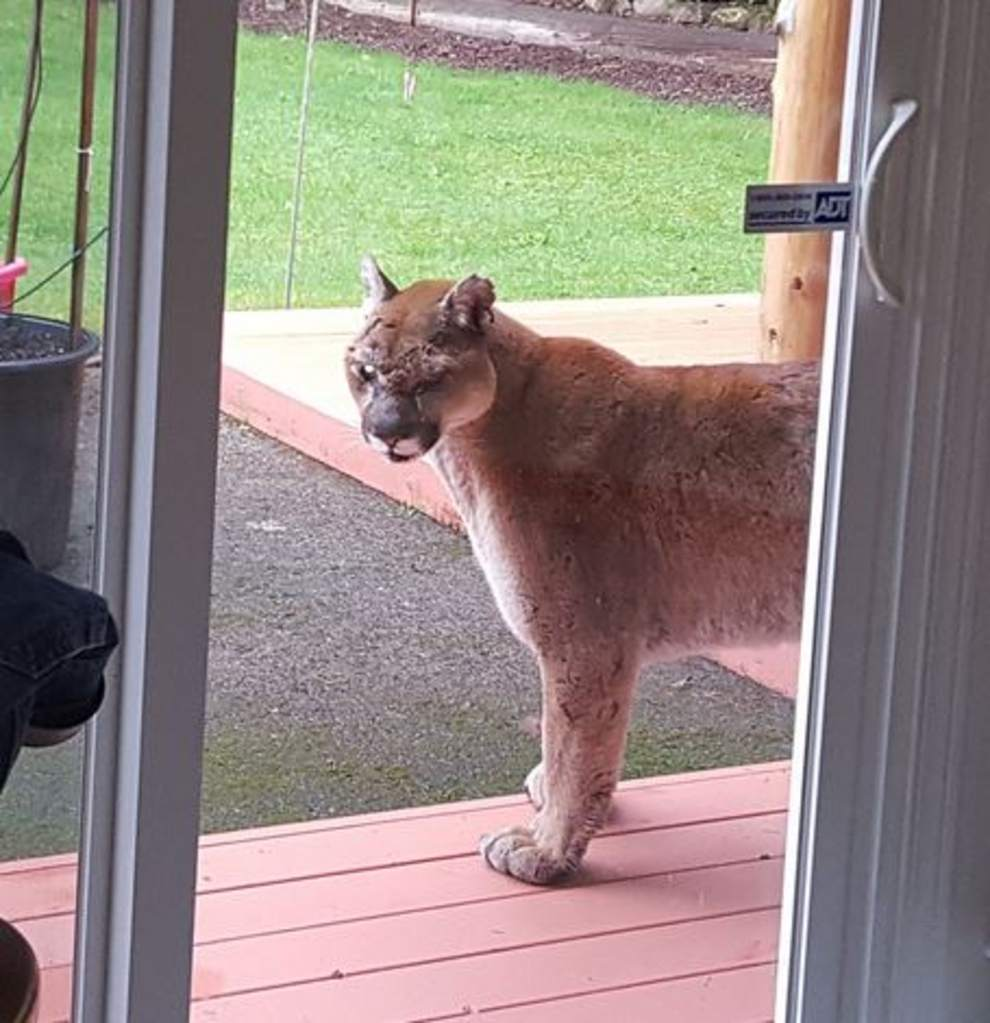
Mountain Lion Tracks
In the early spring of 2018, a friend and I decided to head into the hills of Washington County in search of an elusive, unnamed waterfall. There was quite a bit of snow on the ground at the upper elevations, hard on the surface, and somewhat icy from a day or two prior. On a deserted Forest Service road, we pulled over, and I got out to stretch my legs and hike up and around a corner, intending on scouting the road conditions up ahead.
I could hear the waterfall but couldn't quite see it. My boots crunched in the snow pack at the edge of the road, and as I gazed down toward my feet I noticed tracks; not from my trusty waterproof Columbia hikers. These were round and as large as my hand when I spread my long fingers out. Captivation turned quickly into a chill that shot through my gut and on up through my spine. As I rose up out of a crouch there was dead silence. Was it still there, watching me, or were the tracks days old?
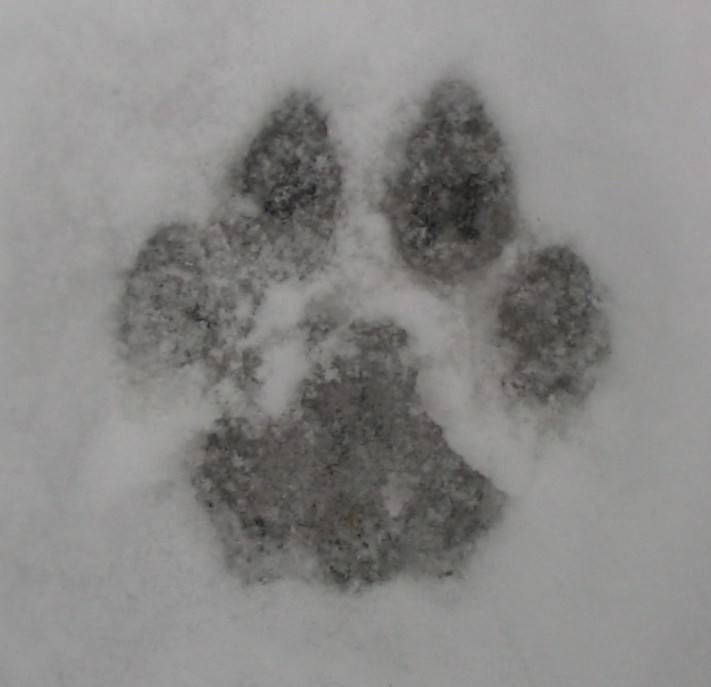
I didn't wait around to find out. Walking purposefully back down the road was the best I could do in the situation. Don't run. The warm Jeep was waiting for me at the bottom, offering shelter from the predator I thankfully never saw.
Big Cats in Oregon
The Oregon Department of Fish and Wildlife closely monitors cougar populations and educates the public on safety measures when recreating in cougar habitat. It's crucial for residents and visitors alike to be aware of these remarkable creatures' presence and respect their role in the natural balance of Oregon's wilderness.

Recently, the Oregon Department of Fish and Wildlife received a concerning report regarding a cougar incident. On May 31, a mountain biker encountered a cougar while riding on the lower section of the Hide and Seek trail, which is part of the Sandy Ridge trail system of Clackamas County. The mountain biker managed to scare off the animal by shouting at it.
Another incident occurred on June 2, when another mountain biker spotted a cougar near the upper part of the trail. Although the cougar didn't show aggression, it lingered in the area without leaving immediately.
Beth Quillan, a spokesperson for the ODFW, explained to the Newberg Graphic, "It's not unexpected for a cougar to be present in this habitat. However, cougars typically avoid humans and are known to be elusive and cautious. It's unusual for a cougar to exhibit this kind of behavior in the presence of a human."
It's worth noting that in 2018, a tragic incident took place on the Hunchback Trail in the Mount Hood National Forest, where a cougar attacked and killed a hiker named Diana Bober. This remains the only known fatality caused by a cougar in Oregon according to the ODFW.
Many will likely remember this 2020 encounter in Slate Canyon, Utah, in which a hiker accidentally stumbled upon a Cougar den. While these enormous felines usually steer clear of humans, a mother of the species is not to be trifled with.
Be Aware, and Don't Take Solitude in Nature For Granted
As I learned after much Googling of animal tracks in Oregon, big feline footprints differ from large canines. While a quick glance shows similarities in paw-pads, Cougars walk with their claws retracted while dogs don't. The tracks I saw in the snowy Washington County hills were most definitely feline. (Bears have elongated footprints, but that's an entirely different story.)
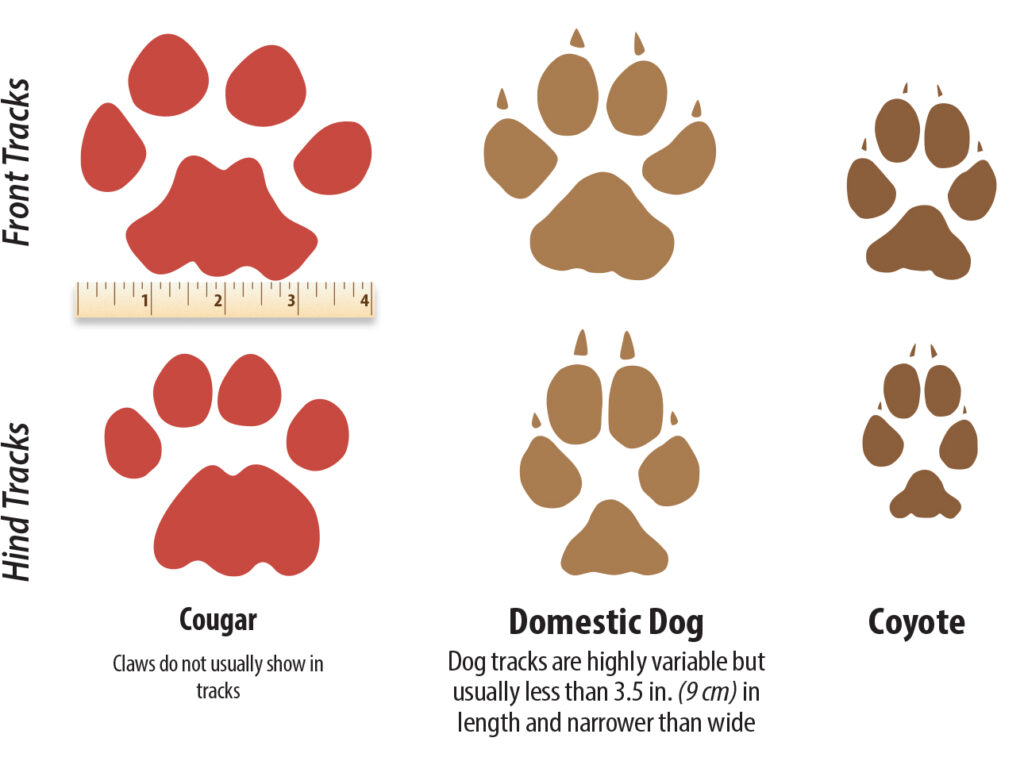
Quillan mentioned that with an increase in recreational activities during the summer, more cougar sightings are possible, although cougars generally tend to steer clear of humans. Encountering one on a busy hiking trail during daylight hours is unlikely, however, the deeper you go away from civilization increases these odds.
While exploring a remote, Northeastern Oregon ghost town in 2016 I quietly watched a massive bull elk in the dense forest close to my parking spot, but I wasn't the only observer. A brief movement in the undergrowth on the other side of my vehicle caught my eye, and then only a glimpse of a long, black-tipped, tawny-colored tail followed. I got back in my vehicle and started back down the primitive road, spying covert movements in the shrubbery that followed the car for a little way, then disappeared. I'll never know whether the big feline was stalking the elk or myself.
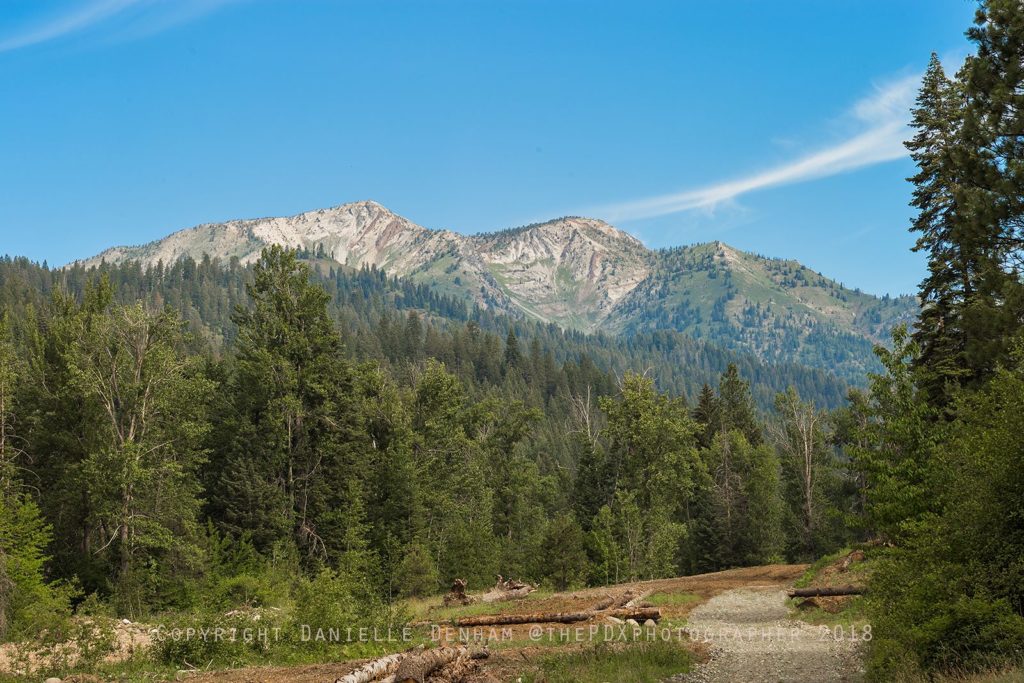
What Should You Do if You Encounter a Cougar?
"If you come across a cougar, it's important to hold your ground, make yourself appear larger, shout, and slowly back away," Quillan advised. "Running or biking away can trigger a cougar's instinct to chase. Therefore, it's crucial to stand firm and exhibit confidence if you find yourself face-to-face with one."
Making noise while hiking or biking serves as an important way to alert animals of your presence and potentially deter them. Quillan recommended generating noise throughout your journey and hiking or riding with a group whenever possible. Carrying bear spray as a precautionary measure while on the trails is also advisable, and keeping pets either leashed or at home is a responsible practice. Your family dog is no match for a Cougar.
"Creating noise while hiking or biking helps prevent surprising an animal, especially when traveling at high speeds or maneuvering around corners swiftly," she explained.
Moreover, always respect nature.

